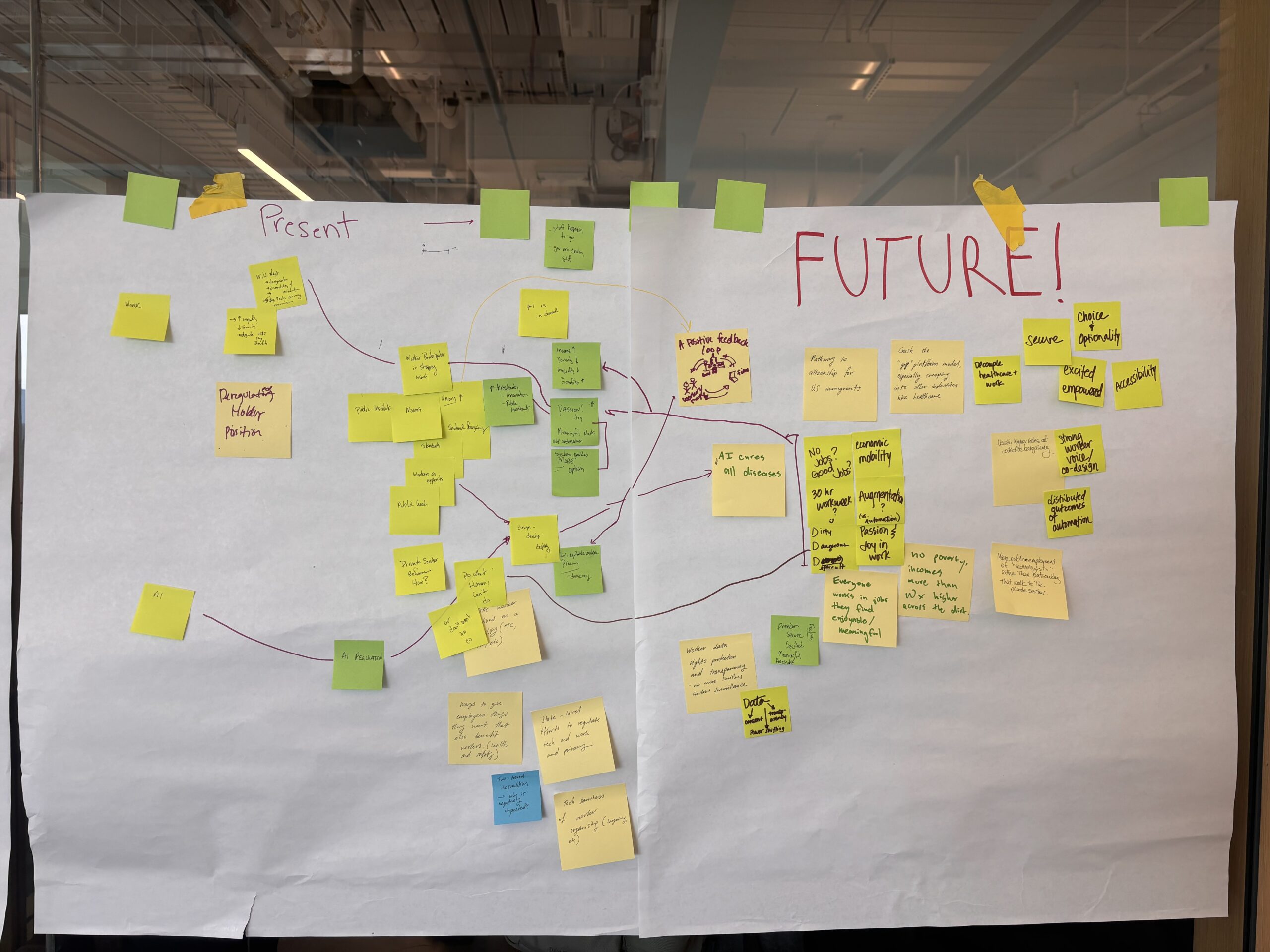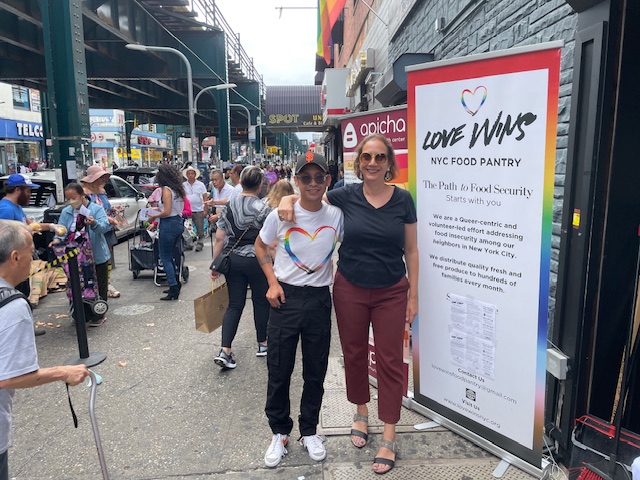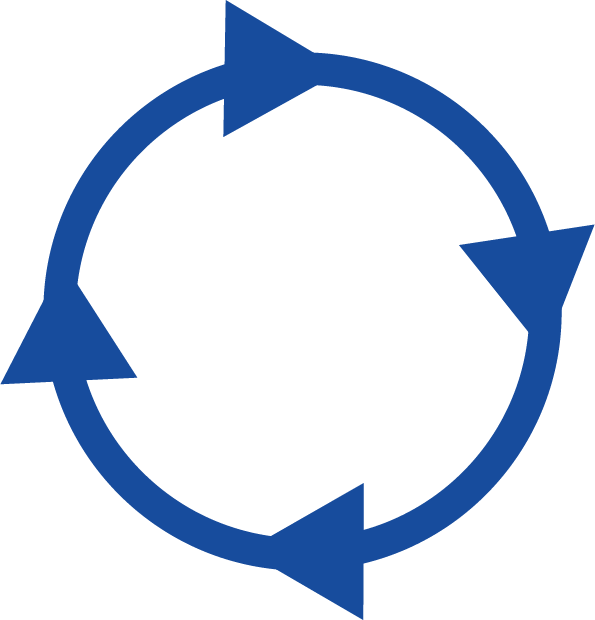Our Approach
We take an inquiry-driven approach to grantmaking, rooted in the scientific method and driven by our core values
Philosophy
Society’s Risk Capital
At Siegel Family Endowment, we believe that philanthropy is society’s risk capital — R&D investment for the social sector that can fund, test, and prove out the new and emerging solutions capable of bringing about systems change at all levels and scales. As such, philanthropy is uniquely positioned to address thorny questions, take big chances, and fund cutting-edge, community-driven ideas that push the boundaries of innovation.
Our approach builds on the scholarship of Arnold J. Zurcher and Rob Reich, who argue that unlike governments and private companies that often can’t risk investing in programs without proven metrics or short term results, foundations are relatively unencumbered. This makes them well-suited to “de-risk” solutions for public and private entities and help actualize the transformative social change our society needs.
We strive to inspire the philanthropic sector to increase its willingness to take calculated risks on innovative ideas, embrace a learning and growth mindset, fund innovators and social entrepreneurs from non-majority backgrounds, and expand beyond short-term metrics to measure comprehensive impact. As a result, our work sets examples for how out-of the-box thinking can transform lives in a real, tangible way.
Approach
Inquiry-Driven Grantmaking
A Grounding in the Scientific Method
We know that philanthropy doesn’t hold all the answers to addressing tough societal challenges. However, we believe that philanthropy is uniquely positioned to ask big questions of our society, and to bring together the right stakeholders to answer those questions. Our inquiry-driven approach to grantmaking is an iterative process of asking questions, systematically interrogating them, and applying our learnings to subsequent rounds of questioning.
Our approach is grounded in the scientific method, and is inspired by our chairman and founder David Siegel’s approach to his life’s work. We ask questions that help us develop an informed hypothesis, support academic and field-work that uncovers evidence, track and interpret outcomes thoughtfully, and apply our findings in order to inform the next phase of inquiry.
These are the questions that we are using to guide the grantmaking in each of our interest areas.
Learning
How can we redesign education systems to center students by fostering future-ready learning environments that address the interconnected needs of learners, schools, and communities?
Workforce
How can we empower workers and communities to shape and leverage emerging technologies to amplify their voices, meet their needs, and ensure workplace innovation fosters equity and prevents harm?
Infrastructure
How might we ensure that communities have meaningful opportunities to co-design, guide, and oversee the development, implementation, and maintenance of the infrastructures they rely upon?
Process
Values in Action
Our values guide how we’ve designed our grantmaking processes, from casting a wide and nontraditional net with our sourcing to funding out-of-the-box ideas and overlooked changemakers to offering flexibility in how we do reporting. Our goal is to center equity in as many ways as we can, and we continue to push, try, fall short, and experiment with ways to put our partners at the heart of our process. We remain flexible so that we can respond to what we’re hearing from our community. While this can not fully address the power dynamic inherent in philanthropy, we hope it may be a step towards balance.
We aspire to support people and organizations that are overlooked by traditional philanthropy, including proximate leaders, who come from and represent the communities they serve and best understand how to leverage their unique assets. We explore if an organization fits in with our funding priorities by forming relationships with the people doing the work. We take on the task of gathering relevant background and contextual information, leaning on publicly available data when possible. And we seek to remain engaged with organizations regardless of their funding status with us, working together on issues that affect our shared fields, making connections to other members of our network, and leveraging their expertise as thought partners.
In collaboration with prospective grantees, our staff takes on the task of authoring grant proposals in order to reduce the time and capacity burden faced by many organizations. We find that this is especially helpful for smaller organizations, which are often led and staffed by systematically excluded and underfunded individuals. We present the recommendations at our monthly board meetings, and aspire to engage with the organization throughout the lifecycle of the grant in a way that best serves their needs.
Monitoring and evaluation are not one size fits all. We offer multiple reporting options to meet various grantee preferences and be able to dive deeper into what they’re learning. Like the grant proposals, we take on the writing of the grant reports using an intentional mixture of data, storytelling, and lived experience to measure and capture the impact of the grant. We present these findings as both written pieces, such as Case Studies, Leadership Q&As, and other communications assets that we draft with grantees’ review and approval, as well as present at internal and external events. We collaborate with our research team to collect findings from the field to help guide our strategy and assist our grantees, and also disseminate what we’re learning to the broader community.
Our work is never done. As we strive to both build a better world and practice equitable, responsive grantmaking, we are constantly evolving our strategies and practice based on what we are learning and hearing from our partners. We routinely collect feedback from our grantees and partners to ensure our processes are centered on the needs of those we serve. We reflect on the impact of our grants and the findings of our research team and partners, and use those to adjust our strategy.
Go Deeper
All Insights
Reflections | Research
Independent Research for Improbably Good Futures: Reflections and Takeaways from Our 4th Annual Fellow Convening
Each year, we bring together our Siegel fellow cohort for an annual convening. This year’s convening, which included 14 fellows,…

From Our Grantees | Q&A | Research
The Human in the Loop: Pegah Moradi on Automation, Discretion, and the Future of Frontline Work
Pegah Moradi is a PhD candidate in Information Science at Cornell University, where she studies the social and organizational dimensions…

From Our Grantees | Q&A
Home Growing Community Leaders in New York City Neighborhoods
CitizensNYC’s CEO Reflects on the Organization at 50 Years and Explains Why Its Work Is More Relevant Than Ever A…


